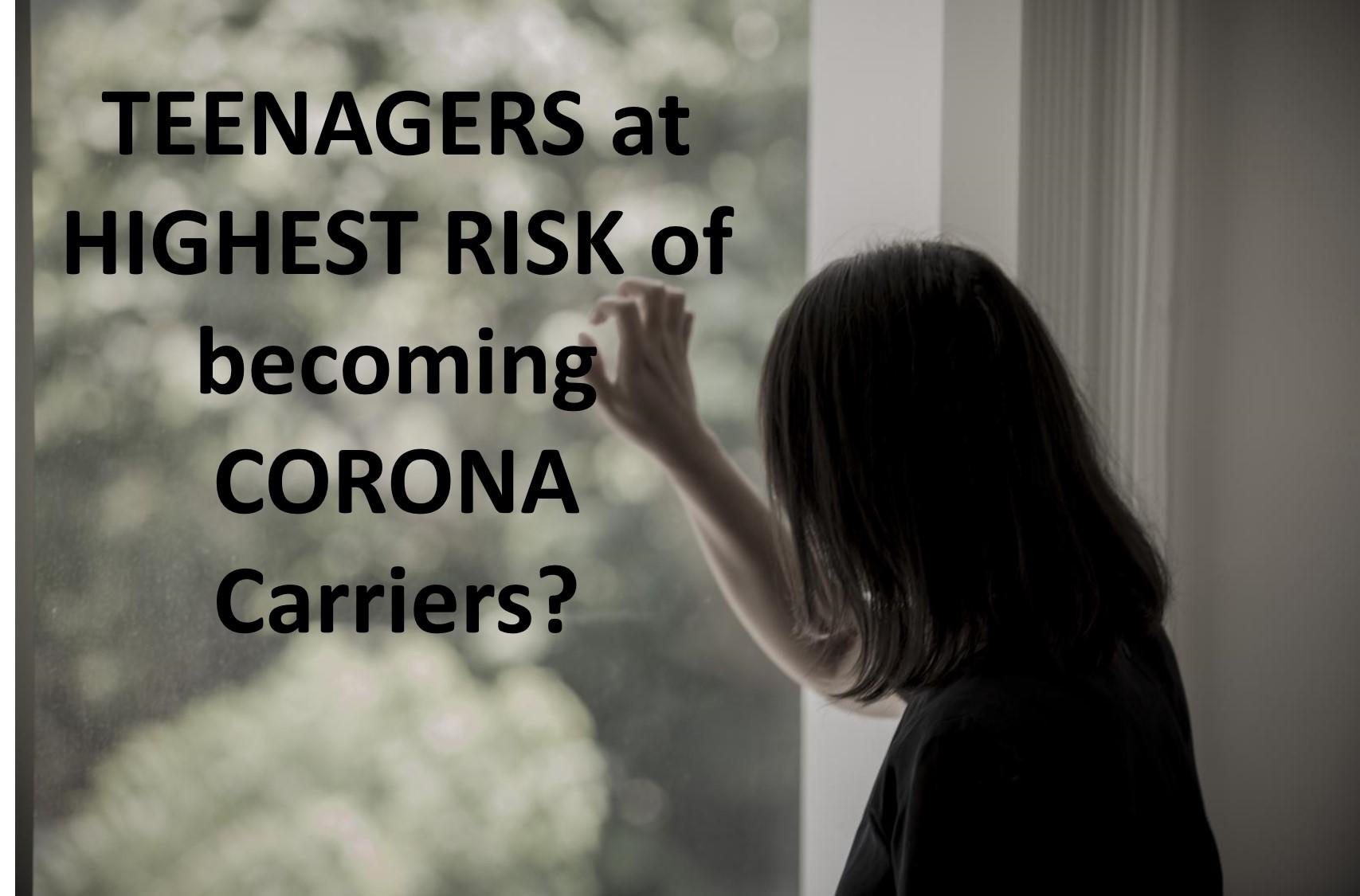Tough times require tough measures - TEENAGERS might be highest risk carriers of Coronavirus
This is the time to use social distancing as the main weapon in our battle against coronavirus infection or COVID19 (Coronavirus Infectious Disease 2019). Social distancing is being followed by communities worldwide in our fight against the pandemic. The benefit of social distancing is to both the person who practices it and her/his family as well as to his society at large. It can be seen as the antithesis of a double-edged sword or rather killing two birds with one stone – keeping your-self safe and protecting your community.
We have all come across individuals who are taking it easy, assuming that COVID19 is like the common cold or flu and that they are going to be fine or assuming that they are immune. We have also likely seen shares on social media where people are partying or getting together in crowds celebrating the end of the “janta curfew” etc, leaving us cringing as to why these individuals or groups do not get it.
Adolescents have an inherent mindset of being invincible (‘Nothing is going to happen to me’), have a tendency to take risks (‘I will be careful’ but not following through with this statement), be rebellious (‘I will do what I want, I know what I am doing’) and at the same time be extremely social with their peers often having high levels of social contact and intimacy (hugging, holding hands, kissing, increased intimacy, strong emotions towards their peers and attraction to the opposite gender).
Social distancing for teenagers is quite difficult and often parents give into the demands of teenagers when they ask for meeting their friends or going out. Many of us may have seen videos of youngsters partying on beaches when the rest of the world is fighting against the pandemic! This is a typical example. I have myself seen groups of these youngsters often huddled together in an alley way or behind a house smoking or talking when all of us are trying to stay away from others.
At this time in our recent history, we have to focus on social distancing and parents of teenagers may find themselves in a situation where they are on one side trying to practise social distancing to keep themselves and their loved ones safe and on the other hand dealing with the pressure of their adolescent child asking for social contact.
As a result of their behavior and thinking processes, teenagers and young people (early teens to early twenties) may be at a higher risk of spreading this disease to their families, elderly and children in their households and the households of their very friends they want to meet.
It is important to ensure that adolescents are cooperating with the current needs of society during this pandemic. This might be the times when using social media, facetime and whatsapp may be allowed to compensate for the loss of physical contact with their peers. Discussing with your teenager in a motivational style where you ask them the disadvantages and advantages of going out to meet their friend, asking them to get information from reliable sources online on how to address this pandemic and how their demands fits with the recommendations or not for example is another approach of how to reduce this risk.
In case your rebellious teenager does go out to meet her/his friends without your knowledge, please ensure that their desire to go out is acknowledged, not reprimanded and at the same time emphasis is made on why it was not acceptable behavior as their behavior may or may not put them at risk but may certainly put the others in their family at risk. When they return home, ensure that they are following hygiene instructions and supervise them as otherwise they may be carrying something potentially dangerous into your house.
Ensure that they thoroughly wash their hands and face with soap and that their clothes and belongings are thoroughly cleaned with soap and that you are not exposed to this. If needed and particularly if suspected, you may have to encourage them to stay in isolation to keep risks to the family minimal.
On the contrary using their computer savvy skills and social media skills, a family might also be at an advantage of what information the teenager brings about the pandemic. A parent can ask their teenage child to take the lead on notifying adults and children in the house of how to address the risk of the pandemic, which may put your teenage child in position of control and allow them to be less rebellious
Tough times require tough and consistent measures.
To join us on Facebook Click Here and Subscribe to UdaipurTimes Broadcast channels on GoogleNews | Telegram | Signal



